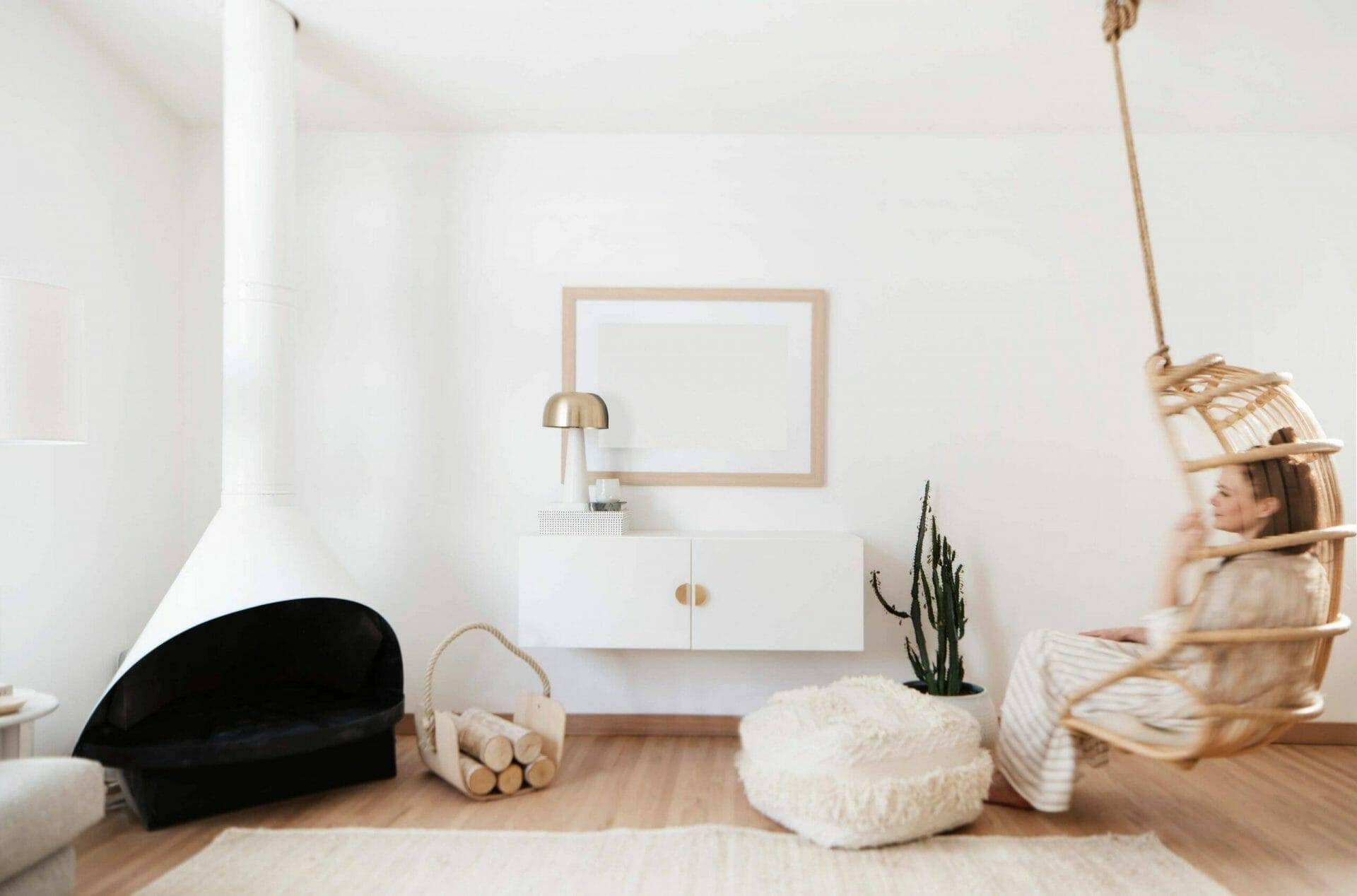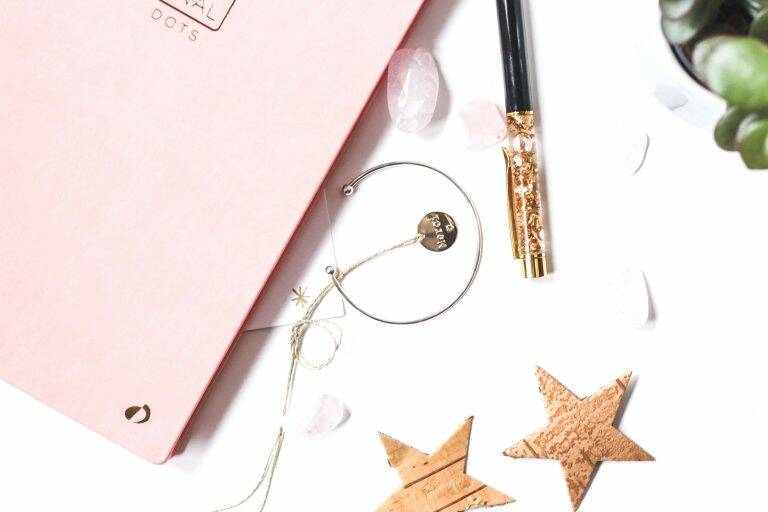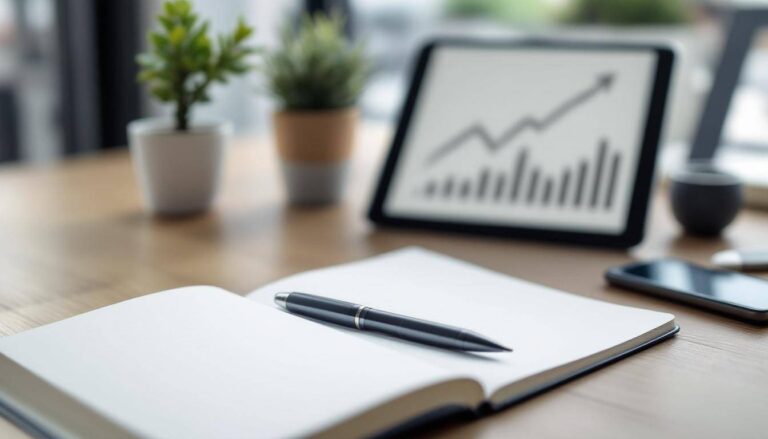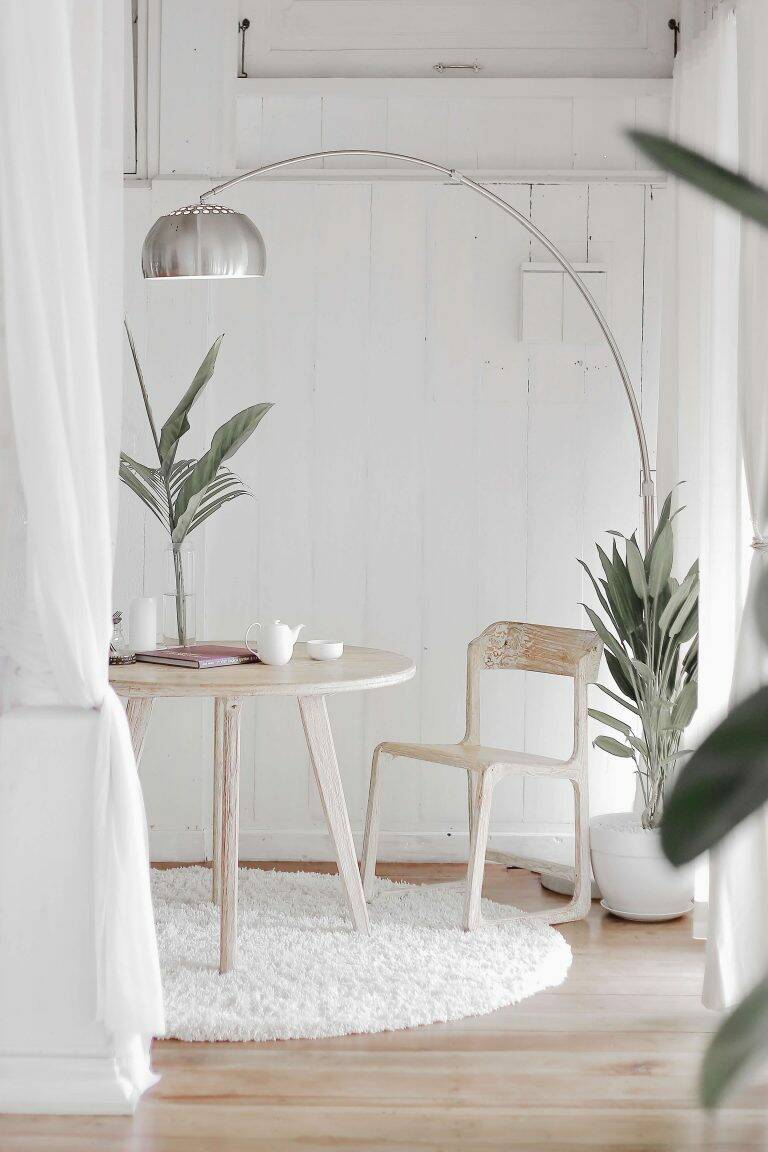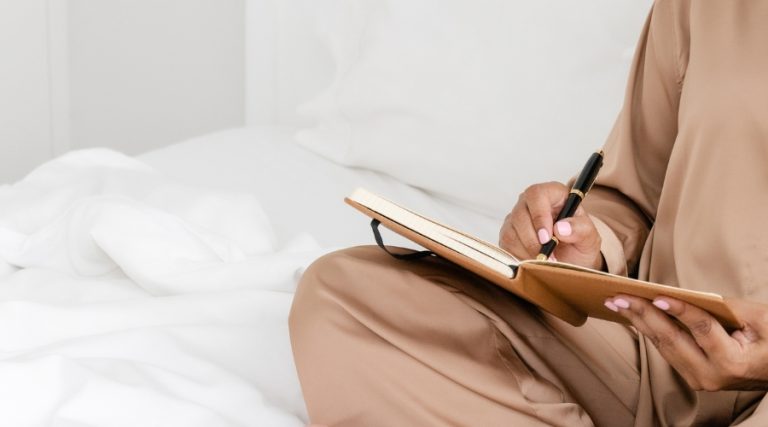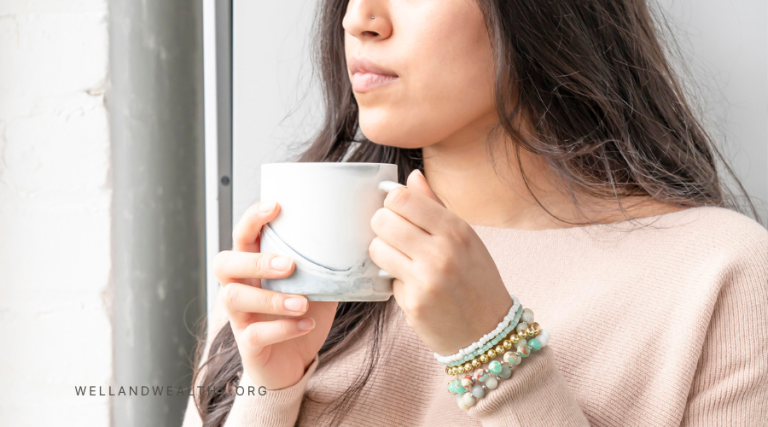10 Simple Ways Minimalism Can Stop Depression And Anxiety
Do you ever feel like getting rid of everything?
I know when I suffered badly from depression and anxiety everything in my environment was a potential trigger that would send me further into the overwhelming blackness.
I would often wonder why do I want to throw everything away or go on a mad cleaning frenzy when my life felt like it was falling apart.
At first, I thought it was because I was trying to gain control of something, which I’m sure had a part to play.
But now that I have committed to my minimalist journey I realize that most likely a part of me knew my stuff (read clutter) was actually helping to drag me further into depression and anxiety.
My stuff was creating a clutter, depression and anxiety cycle that would have been exhausting even for people without mental health issues.
So it was really quite normal that with feelings of depression, getting rid of possessions was also something that crossed my mind a lot.
Yet, despite the title, I’m not touting minimalism as a cure-all for mental health problems.
There are so many factors that affect mental health and it would be highly irresponsible for me to tell you that getting rid of possessions will get rid of your depression and anxiety just. like. that.
But what I can tell you from my own experience, is that embracing minimalism and decluttering my possessions was the final step I needed to ultimately feel like I was in recovery from years of hell at the hands of depression and anxiety.
So whilst yes, my title might have been a bit clickbaity that’s because I’m desperate for you to read this post in case you experience the same health benefits of minimalism I did that can transform your life.
The more people I can help from my own experience the less it feels like depression and anxiety wasted those years of mine.
So read on to find out how minimalism helps anxiety and depression, why minimalism is good and the link between minimalism and mental health…
From non-functioning to functioning
Also, because we are on the subject, minimalism was the final thing I needed to do to permanently get on the recovery road. In order to even put a foot on that road in the first place I took the supplement 5HTP and it was life-changing
I would say 5HTP was the biggest thing that improved my depression and it allowed me to implement other lifestyle changes (like minimalism and an effective self-care routine). So if right now you can barely get out of bed each morning please don’t think I’m suggesting you should attempt to declutter your entire house.
No, right now you need something that just lifts the very heaviest part of the depression so that at some point down the road getting out of bed, looking after yourself and even decluttering your home seems like a very doable activity.
I would really recommend you seek medical expertise and if you’re interested you can check out 5HTP here.
The Christmas Budget Planner
Simplify your holiday planning with the Christmas Budget Planner and stay on top of your spending this season. Keep track of gifts, meals, and savings effortlessly, so you can enjoy a stress-free and joyful Christmas!
So what are the 10 ways minimalism and getting rid of your stuff can help reduce depression and anxiety?
It’s time to answer the question of can minimalism help depression and how!
1) Minimalism reduces overwhelm
I think unless you have experienced depression or anxiety you cannot understand the level of overwhelming this illness brings.
It’s literally catastrophic.
The simplest things, like clearing up after dinner, seem insurmountable and to an outsider, it can just look like you’re procrastinating over a task you don’t want to do.
Luckily the biggest side effect of minimalism is a reduction in overwhelm, and as soon as that stuff goes out the door you will instantly feel lighter and more capable. Honestly, it’s a magical feeling.
Plus this feeling continues because when you declutter properly you will probably get rid of at least half your stuff. Stuff that previously needed tidying, maintaining and that you felt you should be using.
So when that stuff goes for good, the mental load from each of those objects also goes for good.
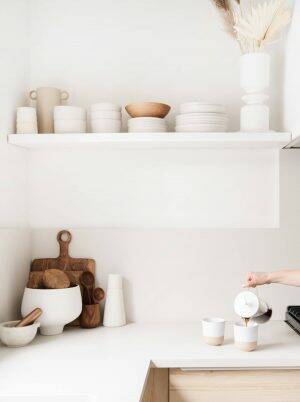
2) Minimalism increase energy
When you have a chronic health condition, whether that’s physical or mental, energy is in short supply.
And you know what takes energy, constant tidying, cleaning and maintenance of your stuff.
I know when I decluttered my own home I suddenly had so much more time just because I wasn’t continuously needing to tidy or clean. It was wonderful.
Plus all that extra energy and time, some of it could be used on self-care to further help your anxiety and depression.

3) Minimalism reduces overstimulation
You know when you are trying to do work but people are talking, you can hear a TV in the distance, the kettle’s boiling and you just can’t concentrate. It’s probably because you are being overstimulated.
Overstimulation is basically our brain going ahhhh there is so much going on I don’t know what to do.
And for many people, particularly those with or recovering from depression and anxiety, clutter and mess can be a very strong trigger for overstimulation, which in turn leads to feelings of overwhelm and a reduction in energy, due to the mental load of having to deal with the stuff.
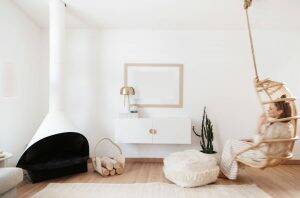
4) Minimalism reduces feelings of guilt
Mess and clutter easily cause guilt because you feel like you should be tidying. You can also feel a lot of guilt if you don’t use certain items like gifts someone gave you or if you brought some expensive clothes and don’t wear them.
Guilt is very much a negative emotion, and something I always found was that it was easier for my anxiety and depression to be triggered if I already had a foundational negative emotion, like guilt.
Plus guilt saps your energy and like I mentioned earlier if you’re already unwell your energy is already depleted!
So if items are causing you guilt, or any other negative emotion then just get rid of them. Your mental health is far more important.
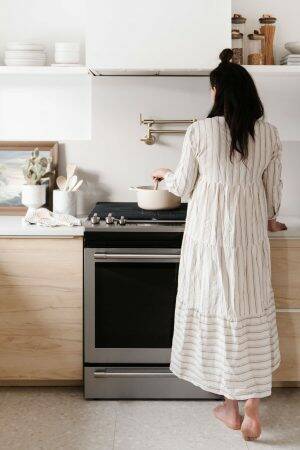
5) Minimalism reduces mental load
I’ve mentioned mental load a couple of times already but I think it’s important enough to warrant it’s own number!
Mental load was recently brought into the mainstream when a French artist, called Emma, created a comic illustrating how females are often left to be managers of the household and this creates a mental load, leading to exhaustion and inequality.
I personally think the idea of mental load can be applied to many other situations.
For example, the mental load of four cars compared with one car is massive, think of all the extra servicing, licensing, insurance, etc you have to remember and do for those three extra cars.
But minimalism reduces the mental load of stuff, purely because you are reducing the amount of stuff you have. This, in turn, reduces exhaustion, overwhelm, guilt and gives you more time (that could be dedicated to self-care or just enjoying life!)
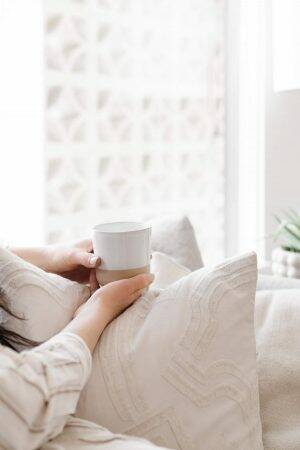
6) Minimalism reduces decision fatigue
Decision fatigue is a subject that fascinates me, especially because I think that that and mental load are two of the biggest time and energy sucks in our modern-day society.
Basically, we only have so much useful decision-making ability in one day.
For example, have you ever got home from a long day at work and were unable to decide what to have for dinner.
It felt like making that choice was just way too hard so you probably either went without or ended up eating general rubbish from the cupboards. That’s decision fatigue.
In fact, many people in high-powered positions will often wear similar clothes every day. Like Mark Zuckerberg who wears grey t-shirts each day or Barak Obama who always wears very similar suits and ties just to reduce decision fatigue.
Minimalism really reduces decision fatigue because you have less stuff and what you do have, you actually like.
So if normally you find it difficult to decide what to wear and your mornings are stressful, if you declutter your wardrobe and embraced a more minimalist approach to clothing that wouldn’t be a problem because you would only own a few things, thus less choice, and the stuff you do own you would love and feel good in.
You will be surprised just how much a tidy home (where you hardly have to do anything to maintain it) and just less choice in your day to day life (because you are only surrounded by objects that you actually like and use) will seriously raise your happiness level and reduce your anxiety and depression.
The Christmas Budget Planner
Simplify your holiday planning with the Christmas Budget Planner and stay on top of your spending this season. Keep track of gifts, meals, and savings effortlessly, so you can enjoy a stress-free and joyful Christmas!
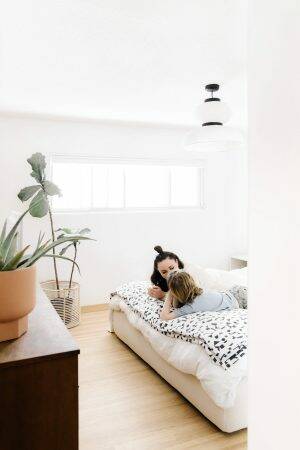
7) Minimalism saves time
Mainly because you won’t be spending hours choosing what to wear, or tidying your home, or finding your keys, etc.
And saving time can really help anxiety and depression in two ways.
Like I’ve mentioned before, the more time and energy you have the more time can be dedicated to self-care and enjoying life. Two key factors in recovery from mental illness!
But also a lack of time, or being late, can be a real anxiety trigger for many of us. So anything that helps increase our time and improves our time management automatically helps our anxiety levels!

8) Minimalism stops you playing the comparison game
When you start on your minimalist journey you begin to realize how possessions really have no impact on your happiness and contentment.
This mind shift away from society’s conventional view of possessions (the more the better, and the more someone has the more successful they are) allows you the freedom to no longer feel like a failure or inadequate just because you don’t have as much as someone else.
So in the same way that reducing your time on social media makes you happier because you aren’t comparing your current life (slobbed out on the sofa) with their social media perfect picture (their life most definitely isn’t always as perfect as that holiday snap you’re staring at…)
Minimalism offers a more permanent shift in the way you view possessions, so instead of having to use social media less (although you should be doing this anyway because it just helps you live more in the moment!)
When you see those pictures of someone getting a new car, or see it in real life, you no longer feel inadequate because you’re driving an old banger.
You just see it as that is what the person enjoys and cares about so that’s what they have decided to invest in and this has no bearing on you whatsoever.
(You might even take pity on them for all that extra mental load they’ve taken on…)
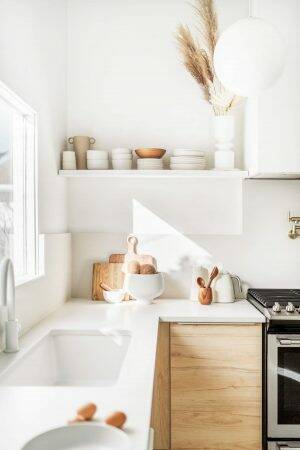
9) Minimalism reduces worry
Minimalism really helps you identify the more important things in life, which in turn gives you the freedom and inner permission not to worry about the less important things!
For example, I’m someone that can find something to worry about in every situation if I let myself. So if I was cooking a meal for friends and burnt the main course that could cause plenty of worry and upset.
But now I realize that the important part of having dinner with friends isn’t impressing them with my (lack of) culinary skills, but instead, the actual time spent enjoying their company.
So now I no longer worry if my food is adequate. Instead, I dish up something I hope is edible knowing that if it isn’t we can find something else to eat, as I’m much more interested in hearing about my friend’s lives than I am about the food I’m cooking.
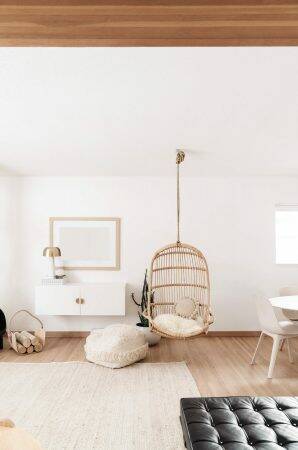
10) Minimalism reduces financial insecurity
Worrying about finances can easily trigger feelings of anxiety or depression. But because minimalism inadvertently reduces your spending it really can help to relieve financial problems.
This benefit can be twofold if you’re someone that copes with negative feelings through shopping as not only will minimalism reduce your shopping habit, thus saving money.
But it will also help you deal with the reasons of why you shop and help you overcome that as well!
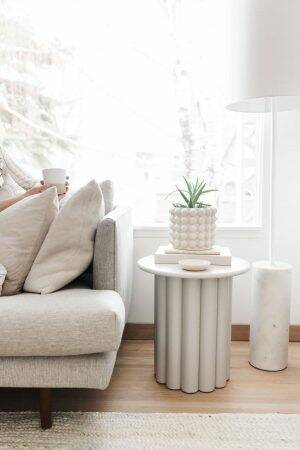
So these are the top ten ways that minimalism can help reduce, and possibly even stop anxiety and depression.
If you’re currently struggling with depression and mental health then I have a FREE printable you might like.
It’s all about the self-care routine I used to beat depression and when used in conjunction with embracing a more minimalist life is super powerful!!!
You can grab the free checklist by clicking the button below.
From my own experiences, I would advise anyone who is able and looking to see an improvement in their mental health to try decluttering and minimalism because it had such a massive positive impact on my own mental health. I think I can honestly say it transformed my life.
But if you now have the urge to throw everything away you might want to know how to get rid of all your stuff…
Want to declutter, then start here
I’ve pulled together some of my best resources on decluttering so you can learn how to get rid of your possessions in a controlled and overwhelm-free way!
- How To Declutter Your Home (And Transform Your Life)
- The Ultimate Beginners Guide to Minimalism
- Stunningly Simple Minimalist Organization Tips [Transform Your Home TODAY]
- Why Your Wardrobe Is Wearing You Down (Is it time to declutter your clothes?)
- 10 Easy Steps to Organize Your Closet Like a Pro [In One Afternoon]



